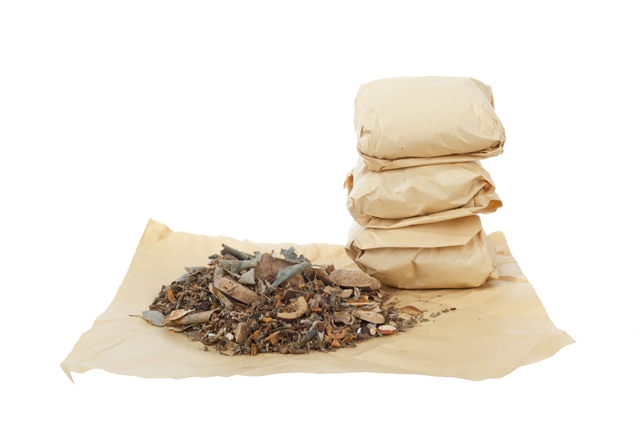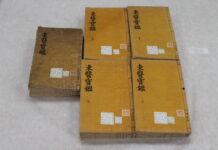
By Ju Bong Kang, KMD
*Ingredients: Chaihu 12g, Guizhi/Gualougen/Huangqin each 6g, Ganjiang/ Gancao each 4g
[Actions and Diagnosis]
Chaihu-Guizhi-Ganjiang-Tang is one of the Chaihu series of prescriptions and treats Shaoyang syndrome of deficiency type, whose pulse is weak or sunken and tense. So, this prescription relieves coldness in the lower limbs, palpitation on the navel, heart palpitation, head sweating, dry mouth, insomnia, fullness in the chest, hypochondria, and slight binding. People who need to apply this prescription are digestible and prefer meat food but don’t like spicy food and usually have a sensitive personality.
Chaihu-Guizhi-Ganjiang-Tang, called the transformed prescription of Xiao-Chaihu-Tang, has various effects and functions like Xiao-Chaihu-Tang and is linked to related prescriptions that can respond to many symptoms and diseases. Huangqin of this prescription means that it started from Xiaochaihu-Tang, and Guizhi means that it is connected with Guizhj-Tang. Muli means Guizhijia-Longgu-Muli-Tang, and Ganjiang implies Gancao-Ganjiang-Tang, Lizhong-Tang, Xiao-Qinglong-Tang, or Linggan-Weijiang-Xinxia-Tang.
For diarrhea, add Baizhu and Fuling (Wuling-San); for phlegm and cough, add Banxia and Houpo or Maimendong (Banxia-Houpo-Tang or Maimendong-Tang); for constipation, add Zhishi and Houpo (Houpo-Sanwu-Tang or Xiao-Chengqi-Tang).
If thirst is intense, add Shigao (Baihu-Tang); for weak abdomen and lower abdominal sinking, add Shudihuang (Liuwei-Wan); if aversion to cold and cold feet are present, add Shudihuang and Fuzi (Shenqi-Wan); and for weak pulse with neurological signs, add Huangqi (Buzhong-Yiqi-Tang, Guipi-Tang, or Shengxian-Tang).
Among the constituent drugs of this prescription, Chaihu and Guizhi become the monarch drugs.
Chaihu has the functions of expelling superficial evils by pungent and cool properties, regulating Shaoyang, and dispersing the stagnated liver-qi so that it restores that feeling of fullness and oppression over the chest and hypochondria, Alternating episodes of chills and fever, bitter taste in the mouth, dizziness, tinnitus, depression, nervousness, shortness of breath, fatigue, lassitude, and menstrual irregularity.
Guizhi induces sweat and expels waste from the muscles, warms the channel, and promotes blood circulation, relieving Taiyang syndrome. It also improves headache, arthralgia, abdominal cold-type pain, foot cold, phlegm retention, dysuria, palpitation, and ‘running-pig’ syndrome.
In other words, these two drugs resolve and eliminate the pathological factors that occurred in the Taiyang and Shaoyang areas by releasing and regulating.
Huangqin and Gualougen act as minister drugs in this formula.
- Huangqin clears heat, drains fire, dries dampness, and removes toxins, especially when Chaihu and Guizhi do not fully release surface-level pathogens. It helps relieve fever, cough, chest oppression, jaundice, diarrhea, nosebleeds, inflammation, uterine bleeding, hematuria, and fetal restlessness.
- Gualougen clears heat, nourishes the lungs, promotes fluid production, and detoxifies. It addresses thirst, dry cough, diabetes, infections, and ulcers, and it replenishes fluids damaged by heat.
Muli, Ganjiang, and Gancao act as adjuvant herbs in this formula:
- Muli calms the liver, anchors Yang, soothes the mind, and preserves the essence. It helps with palpitations, insomnia, dizziness, tinnitus, sweating, nocturnal emission, and leukorrhea.
- Ganjiang warms the Yang, promotes circulation, dries dampness, and transforms phlegm. It’s useful for cold-induced cough, asthma, vomiting, and diarrhea.
- Gancao tonifies spleen and Qi, harmonizes the formula, moistens lungs, stops cough, and relieves spasms, serving as a guiding and harmonizing herb.
This prescription is typically used for patients with a weak abdomen, soft stools, and a feeble pulse. Common accompanying symptoms include fullness in the chest and hypochondriac region, palpitations, abdominal tenderness, sweating on the head, thirst, coldness in the waist and legs, and neurological signs such as vexation and insomnia.
[Application]
Treat conditions with symptoms such as cardiac and abdominal palpitations, forehead sweating, night sweats, dry mouth, thirst, chest fullness, cold feet, and weak wrist pulse, including:
Cold, malaria, cough, asthma, otitis media, mumps, bronchitis, pneumonia, tuberculosis, gastroenteritis, gastric ulcer, cholecystitis, jaundice, hepatitis, pyelitis, nephritis, Graves’ disease, diabetes, hypertension, low-grade fever, alternating chills and fever, unexplained fever, nervous breakdown, fright, and insomnia.
[Distinction]
- Chaihujia-Longgu-Muli-Tang: This prescription improves neurological symptoms and heart palpitation and abdominal palpitation, but unlike Chaihu-Guizhi-Ganjiang-Tang, the wrist pulse is not weak, is not a deficiency-pattern, and is close to the excess-pattern.
- Guizhijia-Longgu-Muli-Tang: Patients with this prescription have palpitations, neurotic symptoms, and sweating but no FFOCH and epigastric glomus.
- Xiao-Chaihu-Tang: In the Xiao-Chaihu-Tang’s provision of “Shang Han Lun,” the letter of ‘suffering’ is written with FFOCH, which is the signal-symptom of Chaihu, while in the provision of Chaihu-Guizhi-Ganjiang-Tang, instead of ‘suffering’ , the letter of ‘mild bind’ is written with FFOCH, which is the signal-symptom of Chaihu.
































